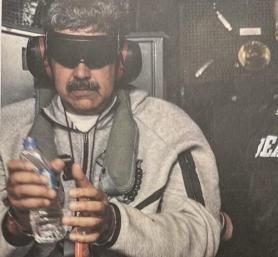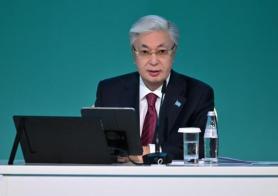
[Arthur I. Cyr]
KENOSHA -- Prime Minister Narendra Modi’s visit to the United States has received mixed reviews. This is not surprising given the nationalist direction of his government, hostility toward religious minorities and growing repression of public criticism of the regime.
India continues to purchase oil from Russia, despite an international embargo in reaction to the invasion of Ukraine. Modi himself declines to criticize his neighbor for the military aggression. Despite the shortcomings of the regime in New Delhi, Modi was accorded a state dinner by President Biden and addressed a joint session of Congress.
The Indian leader himself demonstrated some astute public relations, including on June 21 joining a mass yoga exercise on the grounds of the United Nations. The benign symbolism was a shrewd move.
The respect accorded Modi in no way reflects approval of the unfortunate and ugly aspects of his government, but rather realistic awareness of the profound importance of the South Asia region. Reasonably stable relations with New Delhi are essential to furthering U.S. – and international – interests in stability in that volatile and often violent part of the world.
“The Great Game” refers to the strategic competition between Great Britain and Russia for influence in South Asia throughout the nineteenth century. Secure Indian borders were central to British calculations. The same logic applies to containing Russia, along with China, today.
The conflict between India and Pakistan remains dangerous. In 2019, an attack in disputed Kashmir killed 40 Indian police. Pakistan-based Jaish-e-Mohammed claimed responsibility. Limited combat between the forces of the two nations followed.
Both have nuclear weapons, drastically increasing the risks.
In early 2016, militants raided an Indian military base. The United Jihad Council, a Kashmir group, claimed credit. Simultaneously, terrorists attacked an Indian consulate in Afghanistan.
Only a week earlier, the India Prime Minister had visited Pakistan. The attacks threatened talks involving Afghanistan, India, and Pakistan along with China and the U.S. Ethnic violence occurred again in July that year.
In 2012, Taliban attackers shot young Malala Yousafzai of Pakistan in revenge for her advocacy of education for females. She survived, and has become a vital international symbol of courage. Vital Voices Global Partnership, a nonprofit organization to empower girls and women, established the Malala Fund.
Global media emphasis on incidents involving U.S. military ally Pakistan reflects the region’s strategic importance, but overshadows democratic progress. In September 2013, Mamnoon Hussain succeeded Pakistan President Asif Ali Zardari, who did not seek reelection. This was the first peaceful presidential transition in Pakistan’s history.
This somewhat balances the deterioration of long-established political democracy in India.
Yet Pakistan-U.S. relations remain vexed. Pakistan since 9/11 is a front line in the struggle against terrorism.
Osama bin Laden’s ability to hide in Abbottabad raised suspicion that Pakistan officials may have been complicit in concealing him. That government was not informed in advance of the U.S. SEAL Team 6 raid that killed him.
Historically, Pakistan has been a generally reliable ally of the West, a point often overlooked in media commentary. The British-trained military is extremely capable.
In the 1950s, Pakistan joined both the Central Treaty Organization (CENTO) in the Mideast and Southeast Asia Treaty Organization (SEATO). Pakistan and Britain were distinctive as members of both alliances. These alliances are gone but geostrategic interests continue.
The Quadrilateral Security Dialogue (The Quad), established in 2007, and significantly revitalized in 2017, involves growing collaboration among Australia, India, Japan and the United States. Important incentives include containing China.
U.S. cooperation with India reflects hard political realities.
Copyright ⓒ Aju Press All rights reserved.




